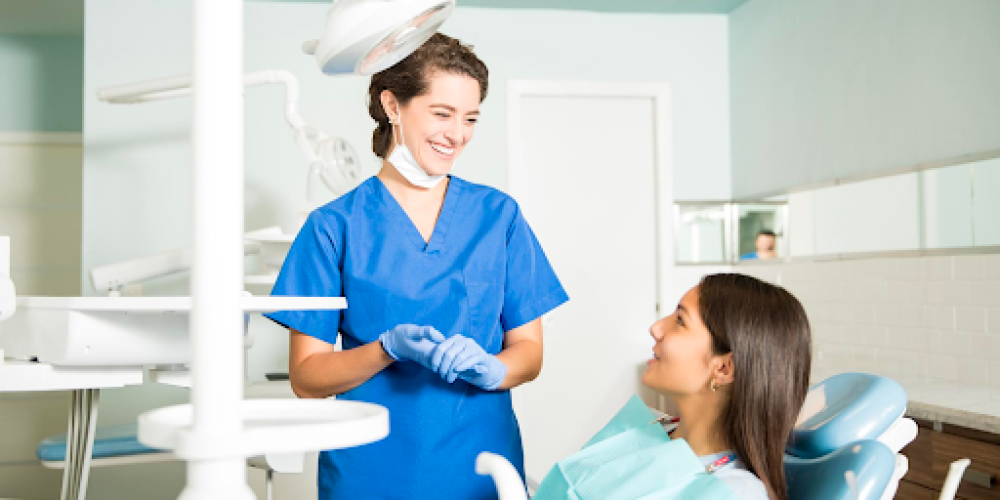Have you ever wondered how frequently you should schedule regular dental check-ups to maintain good oral health? Is it every six months as commonly believed, or is there a different recommended frequency? At Clyde North Dental, we believe in providing you with the best care for your smile, and that includes knowing how often to visit the dentist. Let’s explore the answer together and ensure your oral health is in peak condition.
The Importance of Regular Dental Check-ups
Regular dental check-ups play a crucial role in maintaining optimal oral health. These appointments provide an opportunity for your dentist to assess the condition of your teeth and gums, identify any potential issues, and detect early signs of dental problems. By addressing these concerns early on, you can prevent more serious dental issues from developing and ensure your smile remains healthy and beautiful.
Dental check-ups are not just about treating existing dental problems; they also focus on preventive care. Your dentist will thoroughly clean your teeth, removing plaque and tartar buildup that cannot be eliminated through regular brushing and flossing alone. This step is essential to prevent gum disease, tooth decay, and bad breath.
Preventing Dental Problems Through Regular Check-ups
Regular dental check-ups allow your dentist to monitor your oral health and identify potential issues before they worsen. This proactive approach helps in preventing common dental problems such as cavities, gum disease, and tooth loss. Additionally, your dentist will examine your mouth for any signs of oral cancer or other conditions that may require further attention.
During your check-up, your dentist may also take X-rays to get a comprehensive view of your oral health. X-rays help to identify any hidden concerns, such as impacted teeth, infections, or bone loss. Early detection of these issues allows for prompt treatment, increasing the chances of successful outcomes.
Regular dental check-ups are particularly important for children. Children’s dental needs differ from those of adults, and early dental visits help establish a foundation for good oral hygiene habits and preventive care. By starting dental check-ups early in life, children can develop a positive attitude towards oral health and maintain their dental well-being into adulthood.
Remember, prevention is always better than cure. By attending regular dental check-ups, you can stay on top of your oral health and prevent costly and invasive treatments down the line.
How Often Should You See the Dentist?
How often you should see the dentist may vary depending on your individual needs and oral health status. In general, it is recommended to visit the dentist every six months for a routine check-up and professional cleaning.
Regular dental visits every six months allow your dentist to monitor your oral health, identify any issues early on, and provide necessary preventive care. This helps prevent the progression of dental problems and ensures that your teeth and gums remain in optimal condition.
However, it’s important to note that some individuals may require more frequent visits to maintain their oral health. Factors such as certain dental conditions or being prone to dental issues may warrant more frequent check-ups.
Your dentist will assess your oral health during each visit and provide personalised recommendations for the frequency of your dental visits. They will take into consideration your dental history, current oral health status, and any specific concerns or conditions you may have.
By following your dentist’s recommended frequency of dental visits, you can take proactive measures to maintain good oral health and prevent potential dental problems. Regular check-ups allow for early detection and intervention, leading to better outcomes and reduced treatment costs in the long run.
Signs that You Need to See the Dentist Sooner
While regular dental check-ups are important for maintaining optimal oral health, there are certain signs that indicate the need for immediate dental attention. Ignoring these symptoms can lead to further complications and worsen your overall oral health. If you experience any of the following dental signs or emergencies, it is essential to seek immediate dental care:
- Severe toothache: If you experience a persistent, intense toothache, it may indicate an underlying issue such as tooth decay, infection, or gum disease. Seeking immediate dental attention can help alleviate the pain and prevent further damage.
- Persistent bad breath: Chronic bad breath, also known as halitosis, can be a sign of poor oral hygiene, gum disease, or an underlying dental condition. Visiting the dentist can help identify and address the root cause of the problem.
- Swollen or bleeding gums: Swollen, red, or bleeding gums may indicate gum disease or an infection. These symptoms should not be ignored, as they can lead to more severe oral health problems if left untreated.
- Dental trauma: Accidents or injuries that result in dental trauma, such as a knocked-out tooth or a broken tooth, require immediate dental attention. Quick action can increase the chances of saving the tooth and restoring your oral health.
If you experience any of these dental signs or emergencies, it is important to contact your dentist as soon as possible. Seeking immediate dental care can help prevent further complications and ensure that you receive the necessary treatment for your oral health needs.

Maintaining Your Oral Health Between Dental Visits
Between dental visits, it is crucial to maintain good oral hygiene to ensure the health of your teeth and gums. By following a proper dental care routine, you can prevent dental problems and enhance the benefits of your regular dental check-ups.
Oral Health Maintenance Tips
- Brush your teeth: Brush your teeth at least twice a day for two minutes each time using a soft-bristled toothbrush and fluoride toothpaste.
- Floss daily: Clean between your teeth and along the gumline using dental floss or interdental brushes to remove plaque and food particles.
- Use mouthwash: Rinse your mouth with an antiseptic mouthwash to kill bacteria and freshen your breath. Choose a mouthwash that is alcohol-free and contains fluoride.
- Adopt a healthy diet: Eat a balanced diet that includes fruits, vegetables, lean proteins, and whole grains. Limit sugary and acidic foods and beverages, as they can contribute to tooth decay and erosion.
- Avoid tobacco products: Smoking and using other tobacco products can increase the risk of oral health problems, including tooth discolouration, gum disease, and oral cancer.
By incorporating these practices into your daily routine, you can maintain the health of your teeth and gums, reduce the risk of dental issues, and ensure that your smile stays bright and beautiful between dental visits.
Visit Clyde North Dental for A Check-Up
Regular dental check-ups are an essential part of maintaining good oral health. By visiting the dentist at the recommended frequency, you can prevent dental problems, detect issues early on, and keep your smile in the best possible condition.
At Clyde North Dental, we prioritise your oral health and provide comprehensive dental care. Our experienced team is dedicated to ensuring your comfort and delivering top-notch dental services. Contact us at 03 9121 8121 to schedule your regular check-up and take the first step towards a healthy and beautiful smile.
Remember, your smile is your most important asset, and we are here to help you maintain it. Trust Clyde North Dental for all your dental needs and experience the benefits of regular check-ups for a lifetime of oral health!


